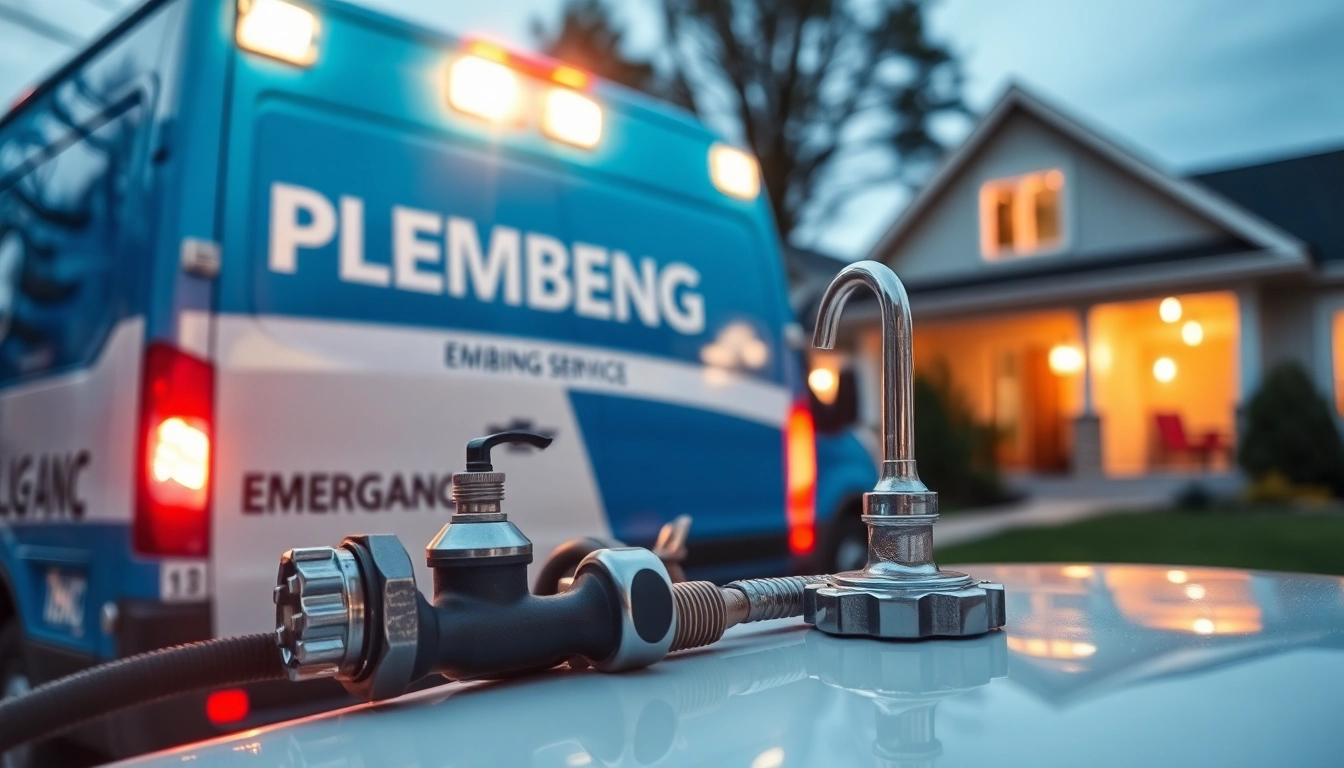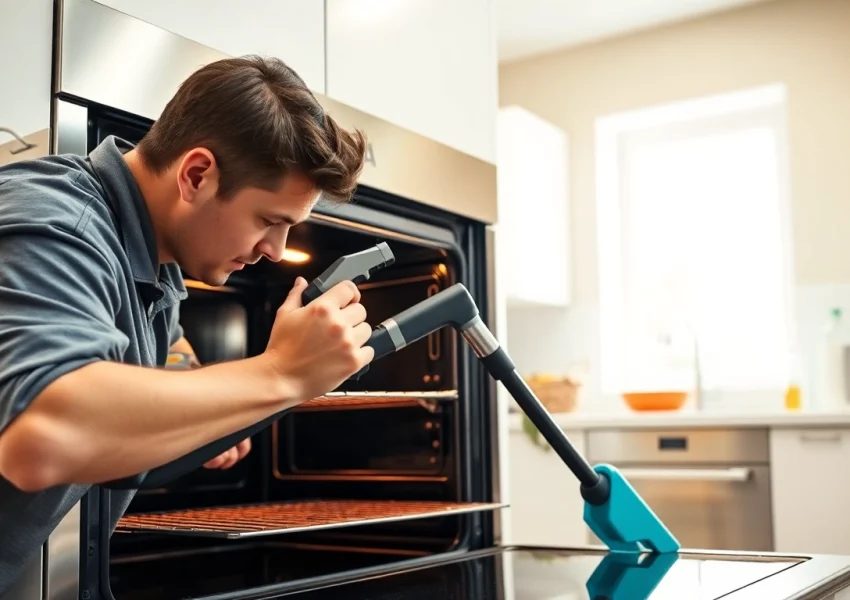Understanding Emergency Plumbing Services
What is an Emergency Plumber?
An emergency plumber is a professional who specializes in urgent plumbing issues that cannot wait for standard business hours. These situations often involve serious problems that can lead to property damage, health risks, and significant inconveniences if not addressed promptly. Typical services provided by emergency plumbers include fixing burst pipes, addressing severe leaks, unblocking drains, repairing malfunctioning hot water systems, and managing sewage backups. Unlike regular plumbers who might schedule appointments for non-urgent repairs, emergency plumbers are available 24/7, ready to respond to crises rapidly.
Common Plumbing Emergencies
Every homeowner dreads the thought of plumbing emergencies due to their potential for extensive damage. Some of the most prevalent emergencies include:
- Burst Pipes: Usually caused by freezing temperatures or wear and tear, burst pipes can lead to flooding and serious damage to floors, walls, and foundations.
- Severe Clogs: While minor clogs can often be addressed with DIY methods, severe blockages in mainlines can cause sewage backups, resulting in unhygienic conditions.
- Overflowing Toilets: This is not just an inconvenience; it can expose residents to harmful bacteria and cause flooding in bathrooms.
- Water Heater Failures: When hot water systems fail, it not only disrupts daily routines but can also lead to water damage if leaks occur.
- Sewage Backups: This represents a health hazard as it can expose individuals to pathogens, making immediate professional assistance essential.
When to Call an Emergency Plumber
Knowing when to call an emergency plumber is crucial in preventing further damage. Homeowners should reach out for help if:
- They notice water streaming from a pipe or fixture.
- A toilet is overflowing and cannot be fixed with a plunger.
- Water pressure drops significantly, indicating potential hidden leaks.
- They encounter a smell resembling sewage or the presence of standing water inside the home.
- They need urgent fixes to ensure the safety and health of the household.
The Importance of Timely Plumbing Solutions
Preventing Water Damage
Water damage is often a silent intruder that can lead to inexplicable expenses and extensive repairs if not handled promptly. The longer water seeps into walls, ceilings, and floors, the more damage it can cause. Timely responses from professional emergency plumbers can mitigate damage by either stopping leaks immediately or managing flooding issues effectively. Preventing water damage not only saves money but also maintains the integrity of a home.
Health Risks from Plumbing Issues
Beyond structural concerns, leaking pipes or sewage backups can introduce various health risks. Mold and mildew thrive in damp environments, potentially leading to respiratory issues and allergic reactions. Sewage contains pathogenic organisms that can cause severe illnesses. Statistically, plumbing-related health issues account for thousands of hospital visits annually. Fast intervention by emergency plumbers can help to restore safe and healthy living conditions.
Benefits of Quick Response Times
The advantage of having access to emergency plumbing services is the immediate response. Quick action can not only halt water flow but also minimize costs by curtailing the potential for extensive damage. Emergency plumbers typically arrive within minutes, equipped with tools and knowledge to address issues efficiently. Their ability to manage crises promptly and effectively not only saves money but also provides peace of mind to distressed homeowners.
Choosing the Right Emergency Plumber
Key Qualifications to Look For
When selecting an emergency plumber, various qualifications should be considered to ensure quality service. First and foremost, verify that the plumber is licensed and insured, as this protects both the homeowner and the plumber during service. Furthermore, proficiency in local plumbing codes and regulations is critical. You should also consider their experience, particularly related to the specific plumbing issue at hand, and inquire about their availability to ensure a timely response in emergencies.
Reading Reviews and Testimonials
Online reviews and testimonials can significantly influence your decision. Websites like Google, Yelp, and local directories provide insights from previous customers regarding their experiences. Look for emergency plumbers with consistently high ratings, responsive communication, and a record of resolving issues swiftly. Don’t hesitate to request case studies or references, especially from those who have experienced similar plumbing crises.
Getting Reliable Recommendations
Personal recommendations are often one of the most trustworthy ways to find a reliable emergency plumber. Speak with friends, family, or neighbors who have recently used plumbing services. They can provide valuable insights about the plumber’s response time, professionalism, and pricing. Additionally, consider checking with local real estate agents or property managers, as they often have contacts for reliable plumbing professionals they trust.
DIY vs Professional Emergency Plumbing
Risks of DIY Plumbing Repairs
While some homeowners may feel equipped to handle minor plumbing issues on their own, emergencies can lead to drastic misjudgments. DIY plumbing repairs can sometimes exacerbate problems rather than solving them, especially if incorrect methods are employed. There’s also the risk of personal injury or creating a hazardous situation in your home, particularly in cases involving sewage or electrical systems. Homeowners must assess whether the potential savings outweigh the risks associated with unprofessional repairs.
When to Take Matters Into Your Own Hands
In certain situations, it may be appropriate to handle minor plumbing tasks before an emergency plumber arrives. This might include simple blockages in sinks or toilets that can be addressed with a plunger or using a snake to remove minor clogs. However, always err on the side of caution—if the problem seems beyond your expertise, don’t hesitate to call for professional help. Remember, attempting to fix serious problems may lead to even more complicated (and costly) issues down the road.
Cost-effectiveness of Professional Help
Although engaging an emergency plumber may initially seem costly, the long-term savings often justify the expense. Professionals can diagnose and fix problems accurately and quickly, reducing recovery times and preventing additional damage to your home. Moreover, the ability to guarantee their work gives homeowners assurance that the job is completed correctly the first time, further saving money on repeated repairs or additional damage that might result from DIY attempts gone awry.
Post-Emergency Actions and Preventative Measures
Follow-Up Maintenance Tips
After an emergency plumbing situation, engaging in follow-up maintenance can safeguard against future incidents. Ensure that all repairs done are functioning correctly and that no lingering issues remained unaddressed. Regularly check for leaks, odd sounds from toilets or pipes, and keep up with routine maintenance to detect dormant issues early. Establishing a relationship with a reliable emergency plumber can help you arrange for regular inspections to catch potential problems ahead of time.
Establishing a Preventative Plumbing Schedule
Creating a preventative plumbing maintenance schedule is invaluable for homeowners aiming to avoid unexpected plumbing emergencies. This should involve regular inspections of pipes, fixtures, and drainage systems, coupled with scheduled services like drain cleaning and pipe inspections. Seasonal checks can help prepare systems for temperature changes, especially in winter. Consider keeping a checklist of tasks to ensure that nothing is overlooked.
Emergency Plumbing Kits You Should Have
Every homeowner should prepare an emergency plumbing kit to handle minor issues before professional help arrives. Essential items to include are:
- Plunger: A standard tool for unclogging toilets and sinks.
- Wrench: For tightening or loosening pipes.
- Tape and Sealant: For temporary fixes on leaks.
- Drain Snake: To manage clogs deeper within pipes.
- Pails or Buckets: For catching leaks or draining water when necessary.
- Protective Gloves: To help maintain hygiene while working in compromised areas.
Having an emergency kit can empower homeowners to take immediate action, reducing the stress and potential damage of plumbing emergencies.






